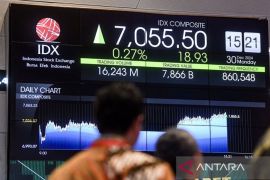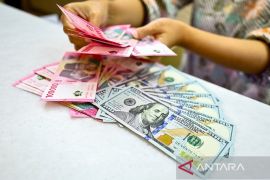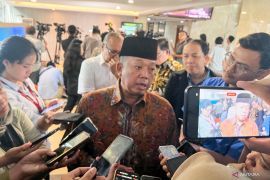Jakarta (Antara Bali) - The Indonesian Institute of Sciences (LIPI) is optimistic that the Indonesian economy in 2017 can grow by 5.3-5.6 percent, exceeding the government's projection in the state budget of 5.1 percent.
"The LIPI's projection shows more optimistic results than the government's estimate. Our economic growth prediction is in the range of 5.3-5.6 percent, or at least at a moderate level of 5.46 percent," LIPI researcher Maxensius Tri Sambodo said in Jakarta on Wednesday.
Maxensius explained the household and government's consumption could serve as the primary booster of the economy as a result of the inflation rate, which could be kept under control, as projected, at four percent in 2017.
The low interest reference rate and the adoption of 14 economic policy packages will also boost the performance of investment, which will have a positive impact on the performance of economic growth next year.
"The low domestic interest rates will contribute to investment growth. Besides this, the impact of the 14 economic policy packages will also be felt in 2017. The policy packages provide simplified investment licensing facilities for the ease of doing business," asserted Maxensius.
In the meantime, the International Monetary Fund (IMF) last month predicted that the Indonesian economy will grow at a rate of 5.1 percent in 2017, mostly fueled by high consumption and private investment.
"The growth will follow a recovery in the commodity prices and reduced lending rate in 2017," IMF Executive Council Luis E Breuer noted in a press statement.
The IMF also predicted that the Indonesian economy would expand by 5 percent this year, fueled by high private consumption.
The Indonesian inflation rate in 2016 is projected to reach 3.3 percent year-on-year and increase to the mid-range of 3-5 percent in 2017 due to the adjusted target of electricity subsidies, he added.
"The current account deficit is projected to increase from 2 percent of the gross domestic product in 2016 to 2.3 percent next year due to an increase in fixed investments and imports," Breuer stated.
The IMF praised the strong economic conditions in Indonesia as of November-end 2016, fueled by a mixture of appropriate, prudent policies to serve the macro economy and by structural economic reforms.
"The authority (in Indonesia) is capable of directing its economy to steer it through the various dynamics of the global economy," he stressed.
The IMF supports the government's steps toward improving its fiscal structure by slashing the budget proportionally with state revenues.
The way in which the government has expanded state revenue sources to spur economic growth has helped induce a sense of stability as it has managed to prevent the deficit from exceeding 3 percent of the gross domestic product, the IMF noted. (WDY)









